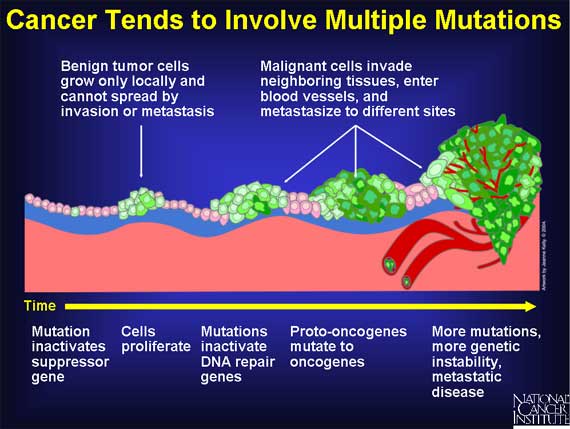|
Cancer may begin because of the accumulation of mutations involving oncogenes, tumor suppressor genes, and DNA repair genes. For example, colon cancer can begin with a defect in a tumor suppressor gene that allows excessive cell proliferation. The proliferating cells then tend to acquire additional mutations involving DNA repair genes, other tumor suppressor genes, and many other growth-related genes. Over time, the accumulated damage can yield a highly malignant, metastatic tumor. In other words, creating a cancer cell requires that the brakes on cell growth (tumor suppressor genes) be released at the same time that the accelerators for cell growth (oncogenes) are being activated.

< Previous | Index | Next Slide > |